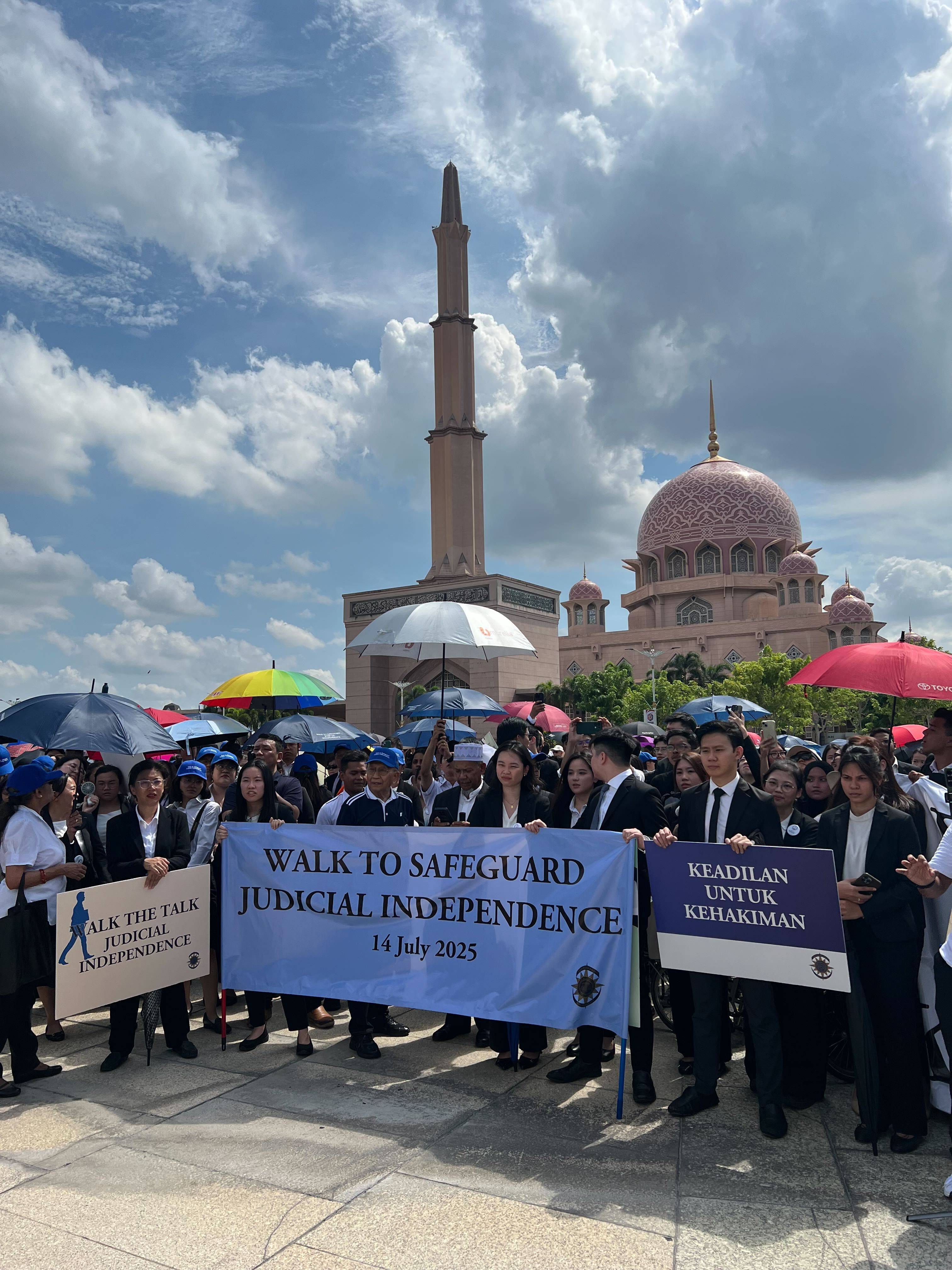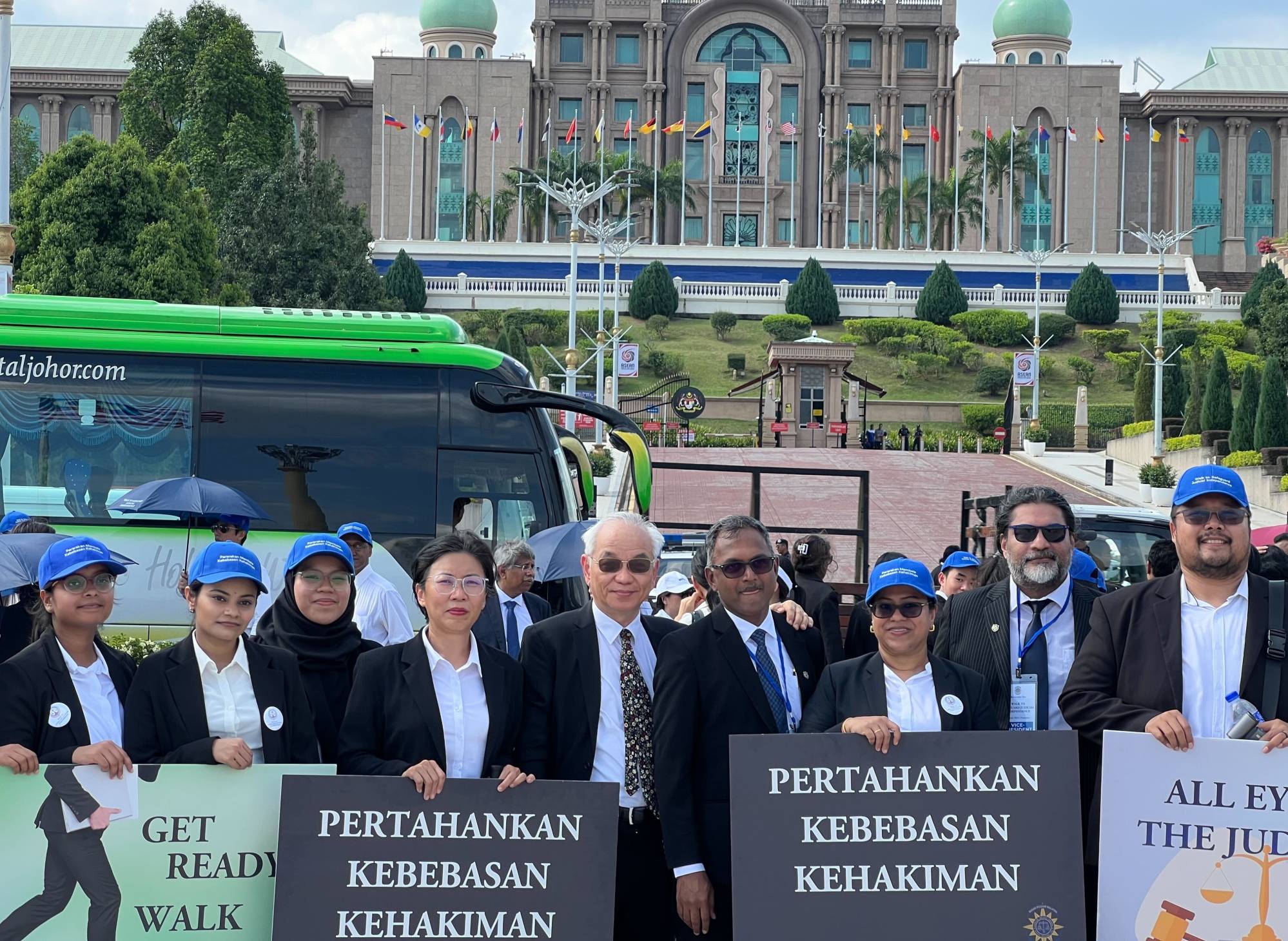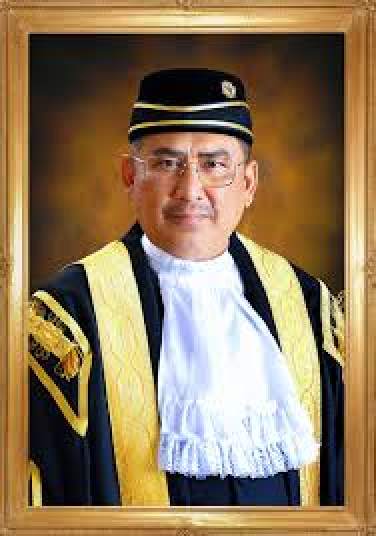Malaysia’s judicial crisis deepens with leaked memo from classified meeting
The legal community is calling for an investigation into misconduct claims against chief justice front runner Terrirudin Salleh

Malaysia’s judicial crisis deepened over the weekend after a leaked memo revealed serious allegations against Federal Court Judge Terrirudin Salleh, as lawyers marched to Prime Minister Anwar Ibrahim’s office on Monday to protest against alleged executive interference in the judiciary.
Anwar has come under mounting pressure over the scandal, with lawmakers from his own party breaking ranks to demand that he “clear the air”, warning that judicial integrity is now “the biggest issue” facing the country.
At 3pm on Monday, almost 1,000 lawyers walked over 2km (1.2 miles) from the Palace of Justice to the gates of the prime minister’s office in Putrajaya to express their concern over the situation.
The prime minister’s office handed out free ice cream to the besuited lawyers sweltering under the afternoon sun. “We want justice, not just ice cream,” lawyer Rafique Rashid said.

The leaked memo, which comprises minutes from a classified Judicial Appointments Commission (JAC) meeting in May, was uploaded to social media on Saturday.
It seemingly substantiates earlier claims of misconduct against Terrirudin, a former attorney general and rumoured front runner for the judiciary’s top post.
Previously reported allegations that the leaked memo corroborated included claims that Terrirudin pressured then-chief justice Tengku Maimun Tuan Mat to rule in favour of certain parties in an unspecified case and pushed for the reappointment of judges linked to ongoing trials.
Terrirudin’s former office, the Attorney General’s Chambers, has since dismissed the claims as “speculation”.
Former deputy law minister Ramkarpal Singh said the allegations “strike at the very core of the integrity” of the judiciary and urged the prime minister to suspend Terrirudin’s candidacy for higher office until the matter was investigated.
“The position demands a thorough and transparent investigation and anything less can result in a serious loss of confidence in the government which should be avoided,” Ramkarpal said.

Under Malaysian law, top judges are appointed by the king on the prime minister’s advice, based on candidates vetted by the JAC. The monarch is constitutionally bound to accept the prime minister’s recommendation.
Terrirudin was elevated straight to the Federal Court in 2024 after just 14 months as attorney general.
Unhandled type: inline-plus-widget {“type”:”inline-plus-widget”}
Lawmaker Rafizi Ramli, who resigned from Anwar’s cabinet in May, has claimed that there was a concerted effort by the government to elevate Terrirudin to a higher office, including that of chief justice, despite his lack of experience as a judge, having only written one judgment since last November – allegations that the leaked memo corroborated.
Legal activist Zaid Malek of Lawyers for Liberty criticised the government’s response, calling it “a complete disconnect” between public outrage over the leak’s contents and the administration’s focus on suppressing discussion.
His remarks followed a warning by Communications Minister Fahmi Fadzil, who urged the public – “especially the media” – not to circulate the leaked documents, saying they could be genuine and thus protected under the Official Secrets Act (OSA).
Malaysian law criminalises the dissemination of classified documents, with penalties of up to seven years in prison, even for those who merely repost or report on their contents.
“What the government must do is address the concerns over the judiciary, which has become a national crisis,” Zaid said. “The leak of the JAC minutes was in the public interest – not against it.”
He added that “tens of thousands” of people had viewed or shared the memo, and questioned whether the government intended to arrest all of them. “The public has a right to know.”

“There is no need for any OSA investigation. Instead, the government must immediately impose a moratorium on all police probes under the OSA, pending its repeal. This is a policy decision which the government can and must take, and which would be consistent with their oft-repeated claims that they are committed to reforms,” the Lawyers for Liberty director said.
Public attention on the issue intensified last week following the mandatory retirement of chief justice Tengku Maimun and Court of Appeal president Abang Iskandar Abang Hashim, both of whom were denied six-month extensions despite lingering uncertainty over their successors.
Aside from them, nine other Federal Court judges are set to retire by the end of the year, on top of an existing 31 vacancies in courts across the country, 24 of which are at the high court-level.
Steven Thiru, president of the Commonwealth Lawyers Association and a former president of the Malaysian Bar, said this kind of uncertainty had never been seen in the country’s judiciary before.
“We have a process, which has not been complied with. You and I are entitled to ask why,” Thiru asked at a forum on Sunday on the issue.